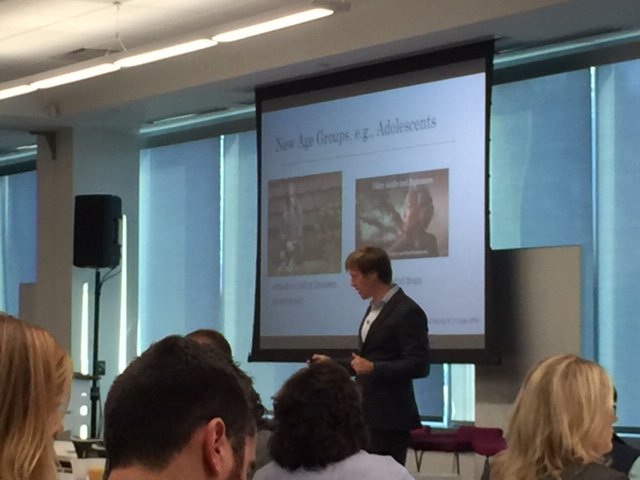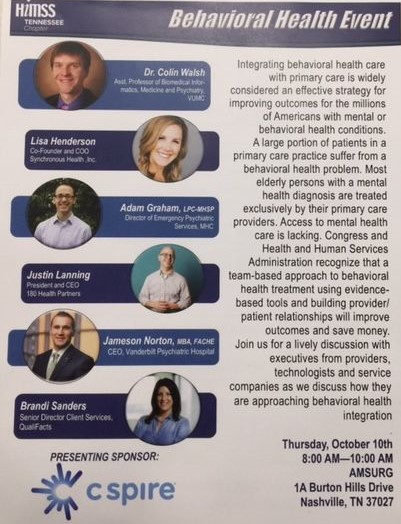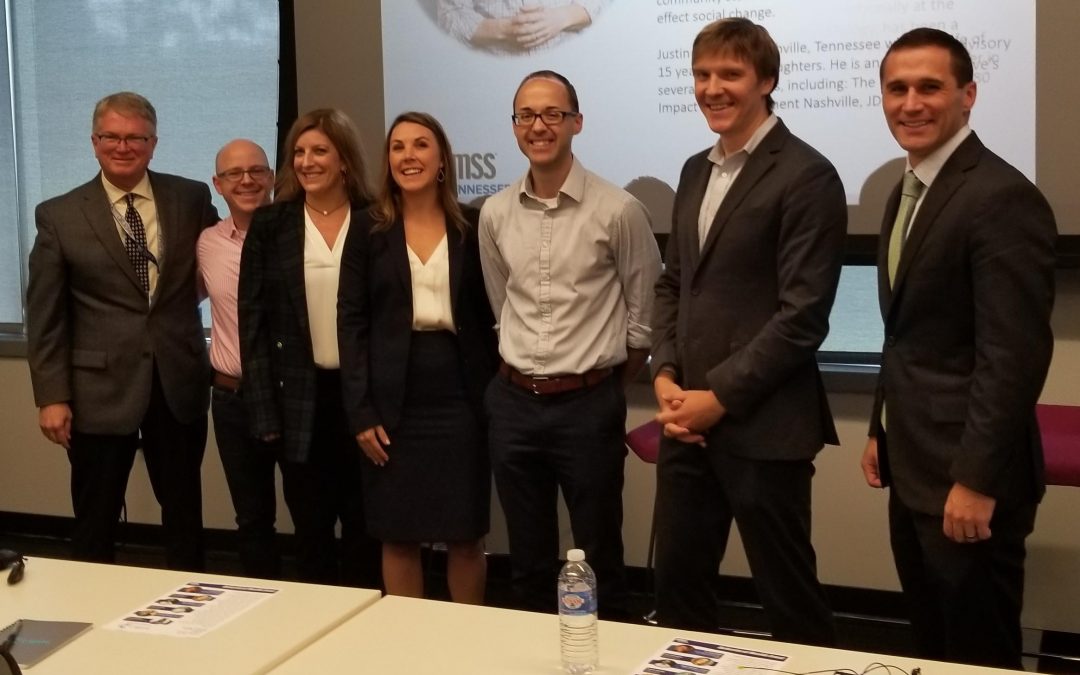by Eric Thrailkill, VP and CIO of AMSURG/TN HIMSS Chapter President
We recognize National Mental Health Week from October 7-11 and the World Health Organization recognizes (WHO) (to promote awareness and recognize care providers, patients and families) World Mental Health Day on October 10th.
Against the backdrop of a beautiful sunny (and almost fall-like) morning, a group of experts gathered for the Chapter’s Behavioral Health Event on the morning of October 10, 2019.
Jennifer LeMieux, VP of Programs, put together an excellent panel of speakers, moderated by Lisa Henderson of Synchronous Health. The panel discussed various issues, challenges and solutions in delivering care to a complex, and frequently vulnerable, population of patients.

Colin Walsh, MD, Assistant Professor of Biomedical Informatics, Assistant Professor of Medicine and practicing physician, commenced the day with a discussion of his latest research utilizing artificial intelligence (AI) to predict patters associated with suicide. Early detection, being the cornerstone for prevention, was discussed in numerous studies looking for patterns within EHR data and external data resources. Dr. Walsh noted, with emphasis “…let’s change the conversation from ‘What Could I Have Done? to What Can I Do?’ ” when discussing the potential use of AI and embedded clinical workflows into practice. Significant challenges remain, however, with respect to privacy and ethical considerations in using pattern recognition algorithms in many aspects of mental and behavioral health.
Lisa Henderson, COO and Co-Founder of Synchronous Health, moderated a fantastic panel featuring:
- Justin Lanning, President and CEO of 180 Health Partners
- Brandi Sanders, Senior Director Client Services at Qualifacts
- Jameson Norton – CEO of Vanderbilt Psychiatric Hospital
- Adam Graham – Director of Emergency Psychiatric Services, Mental Health Cooperative

I found an immense appreciation from the organizations as they discussed the role of technology and information in assisting services that are provided today. The road ahead to detecting and treating certain behavioral health issues is quite complex, starting with an understanding of the intersection of detection, care coordination and better information available to care providers – without increasing their burden of documentation.
The Tennessee Chapter of HIMSS is extremely gracious in the contribution from the speakers, panelists and the members in attendance.

